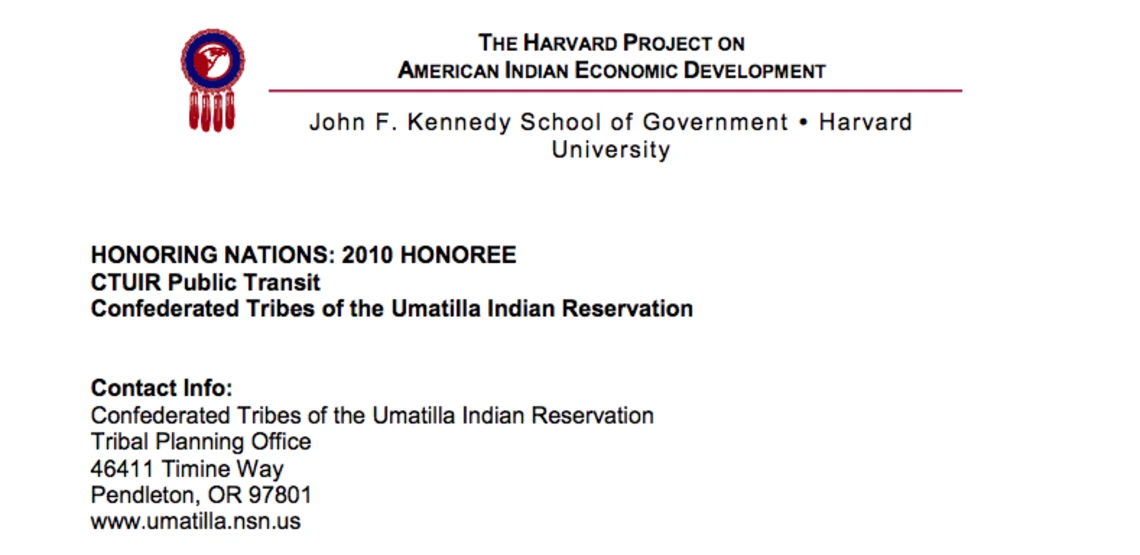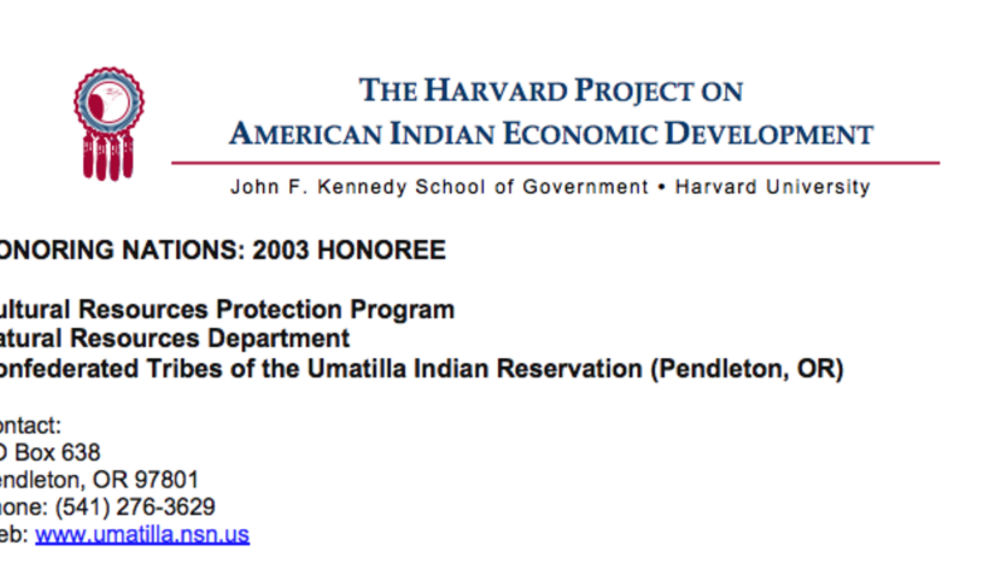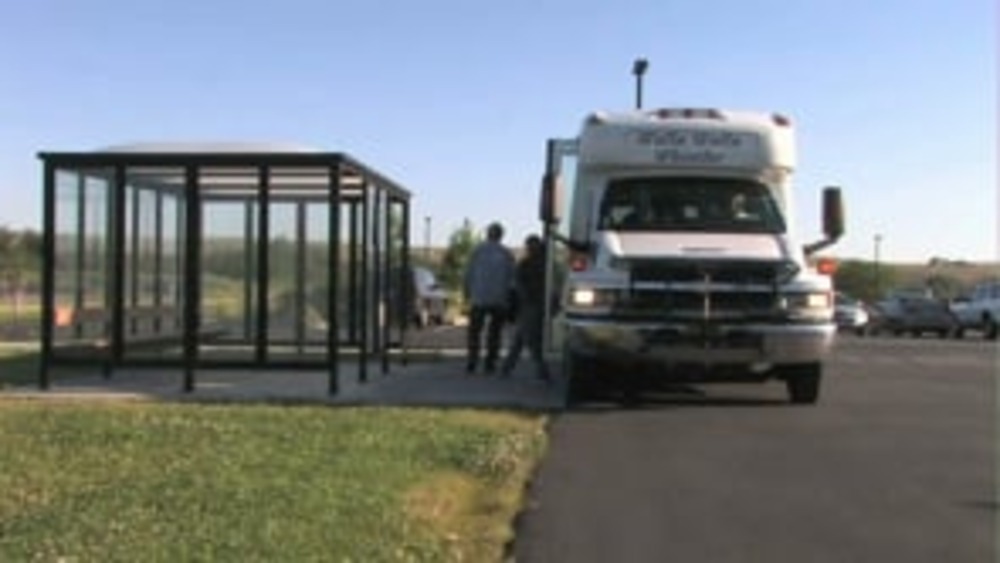In most rural areas of America, if you do not have a car it is difficult to get around. Without transportation, people must depend on friends or family for rides. It can be tough to plan medical appointments, maintain work schedules, shop for necessities, or sign up for classes. The Confederated Tribes of the Umatilla Indian Reservation (CTUIR) found this lack of mobility in and around their reservation troubling. In response, they decided to sponsor a bus and taxi-voucher service for travel in the area. Now recognized by both state and federal transit officials as one of the most efficient and capable public transit systems in the Pacific Northwest region, CTUIR Public Transit has opened up new opportunities for tribal citizens and strengthened relations with neighbors.
Additional Information
"CTUIR Public Transit." Honoring Nations: 2010 Honoree. Harvard Project on American Indian Economic Development, John F. Kennedy School of Government, Harvard University. Cambridge, Massachusetts. 2011. Report.



